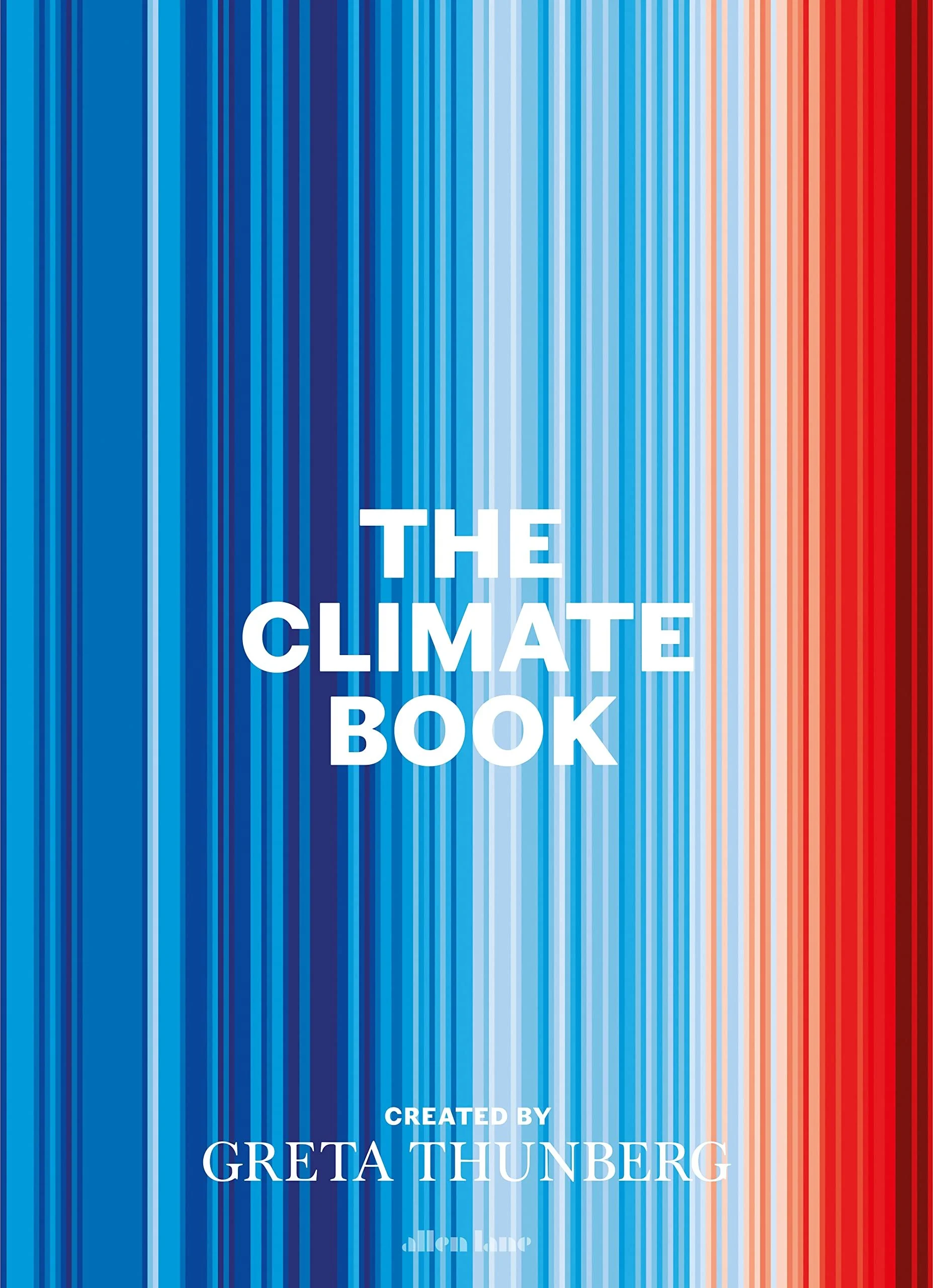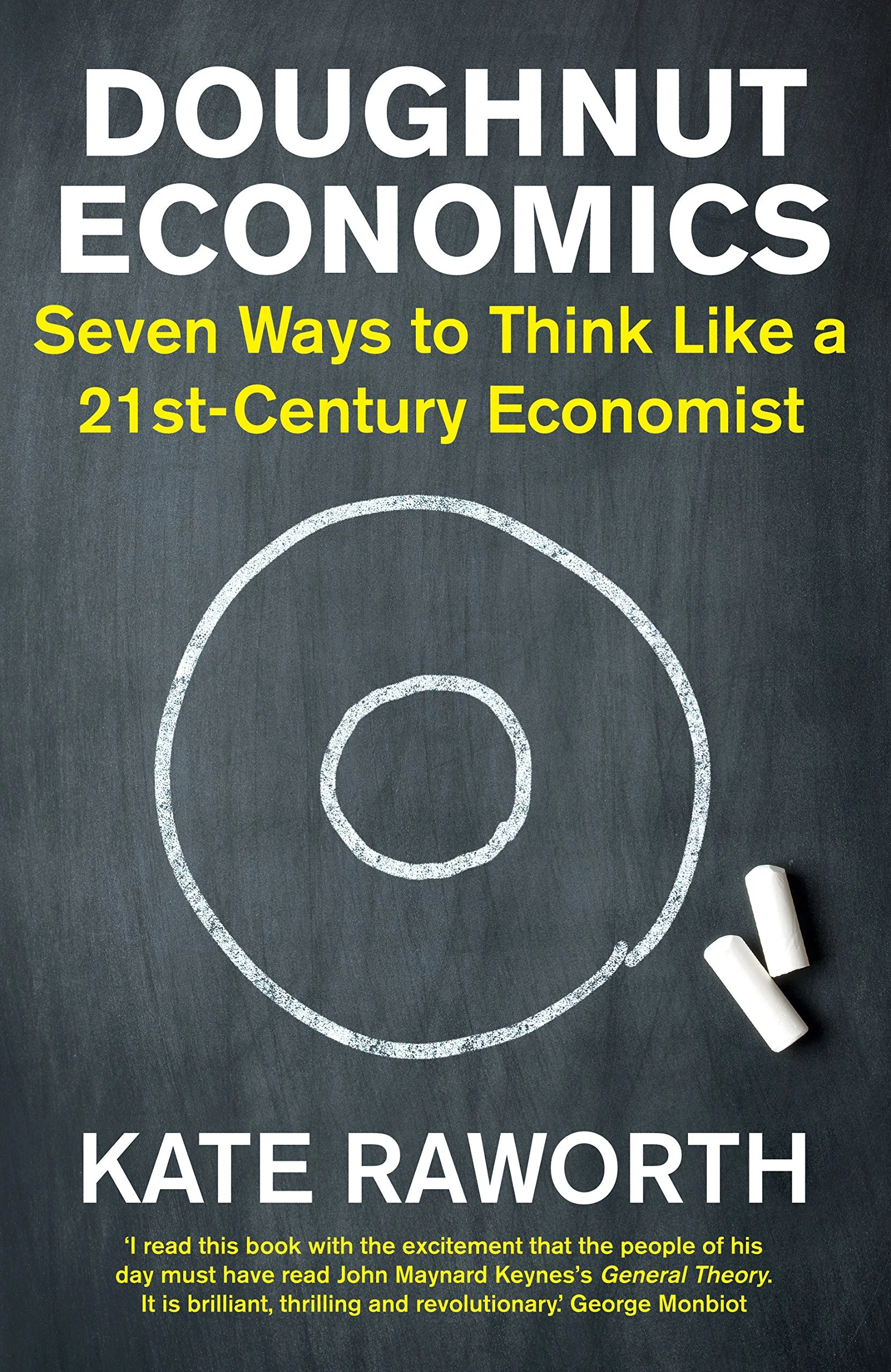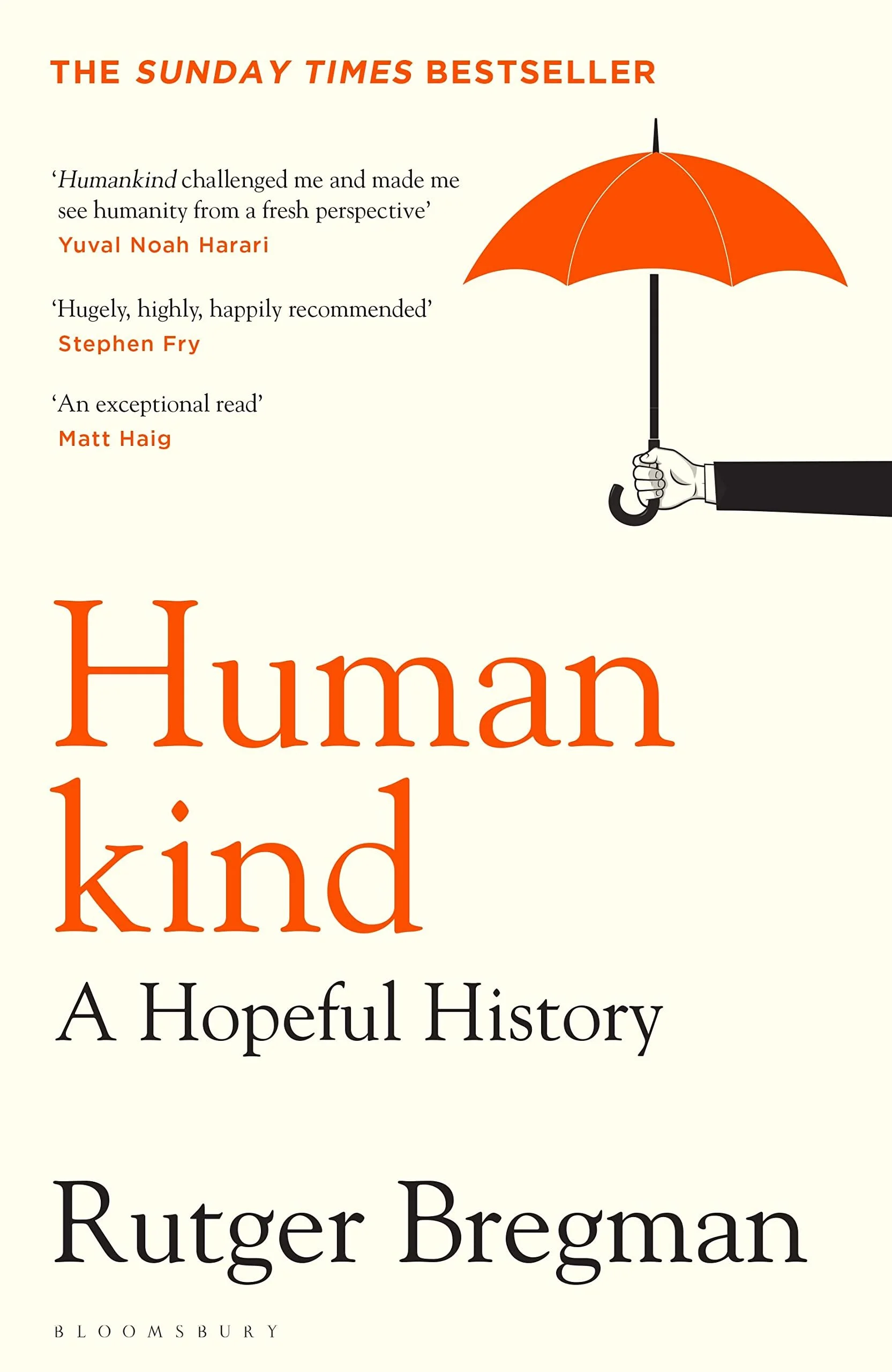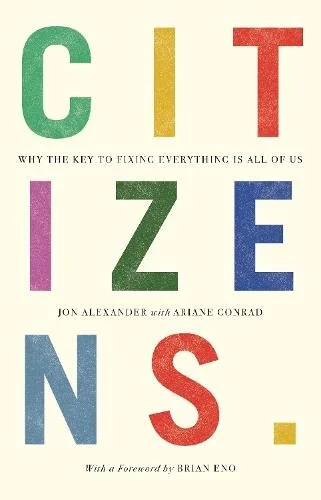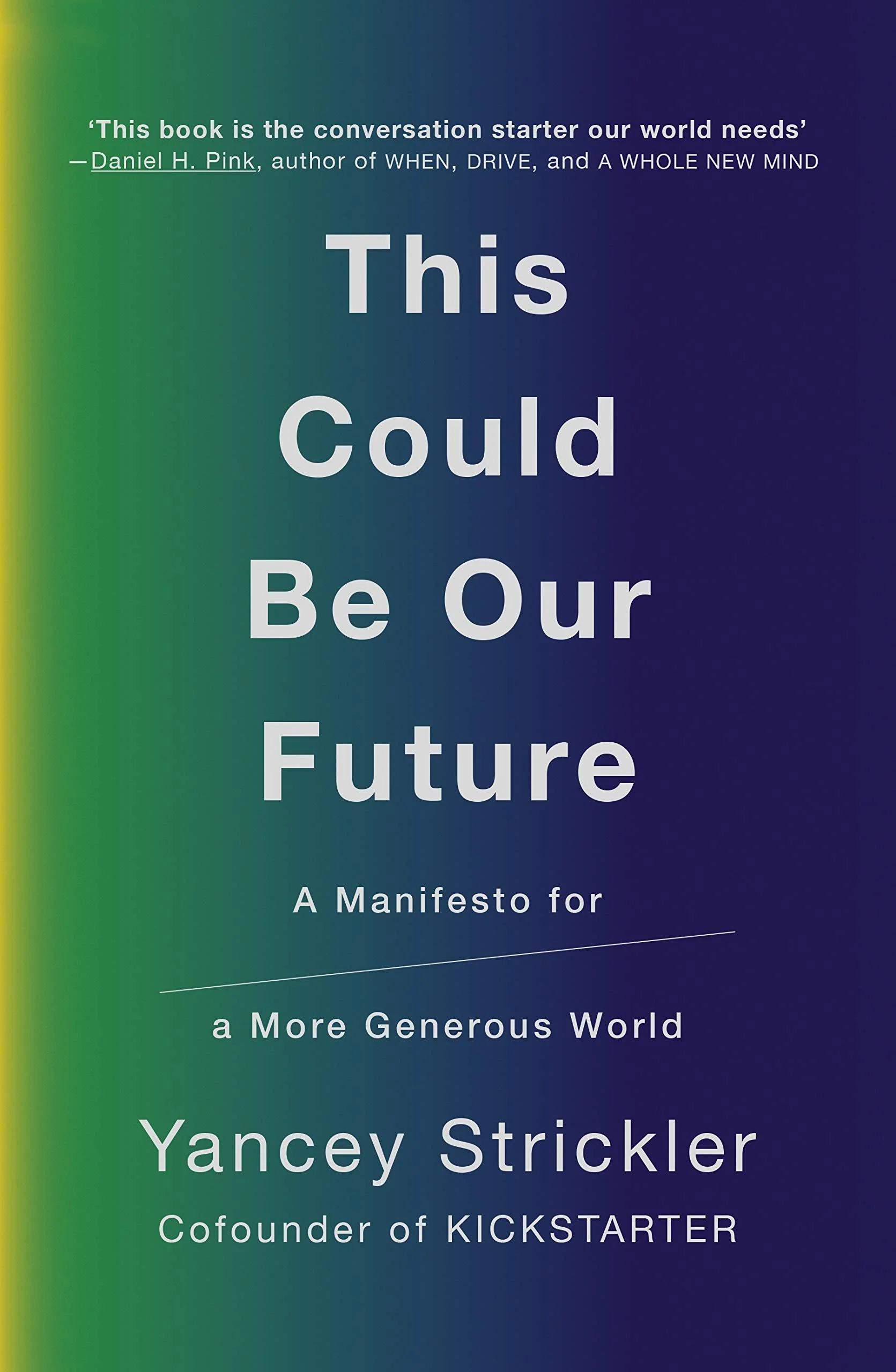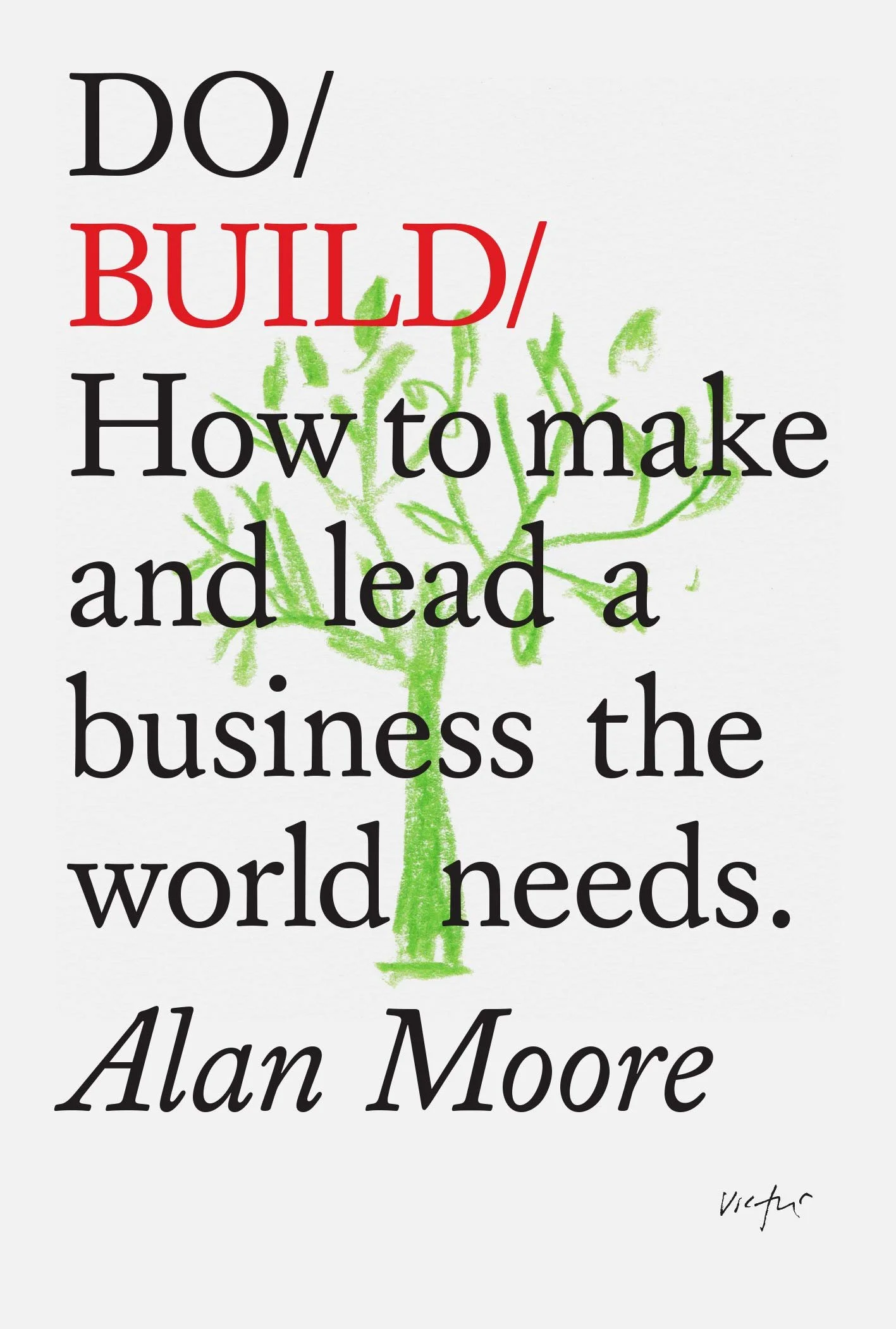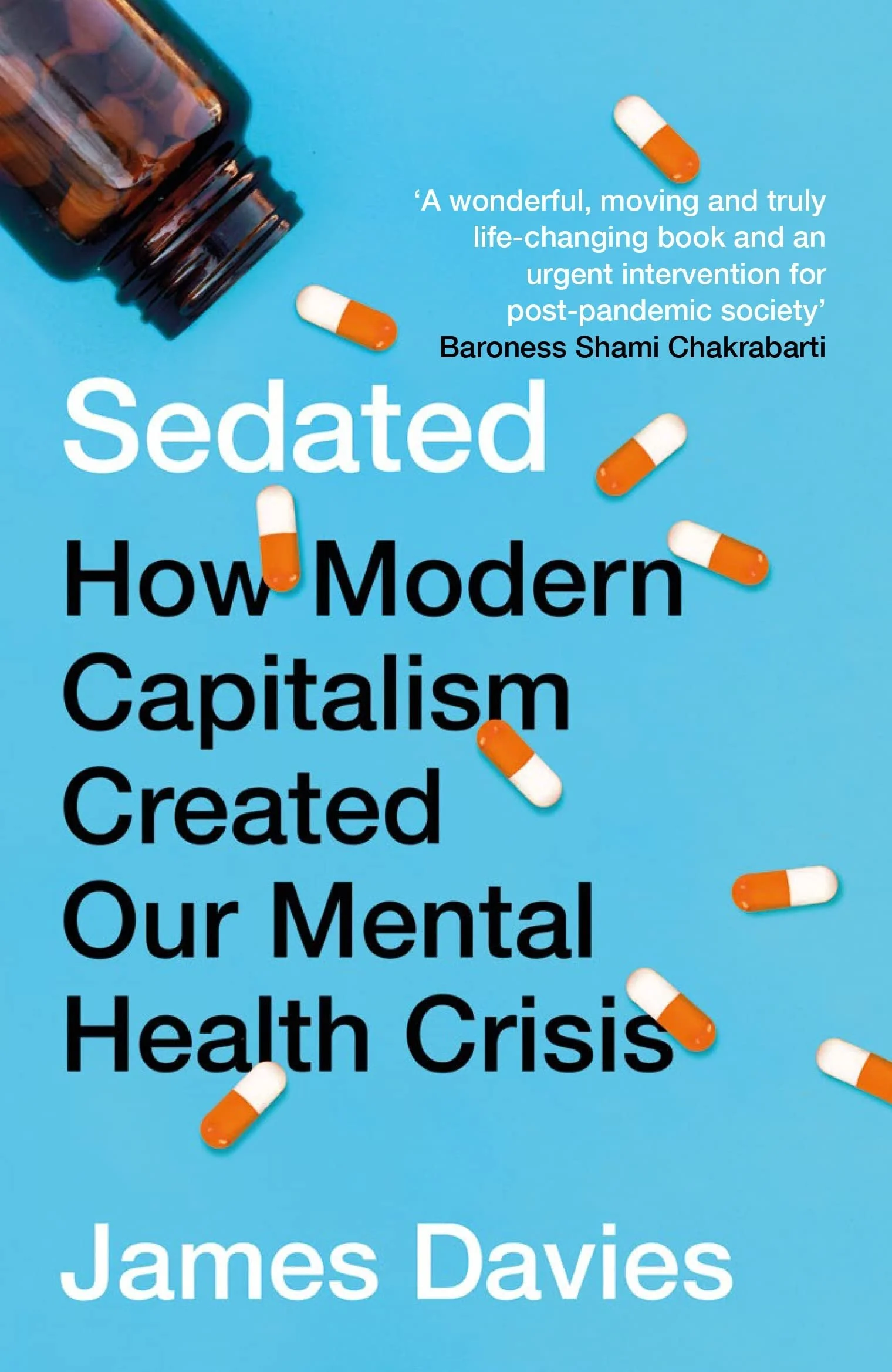Books on a better future.
In recent turbulent years, as we build ever more awareness of the complex global issues that feel insurmountable at times, it seems easier than ever to get caught in a downward spiral of pessimism and even hopelessness about the future.
For me, these books look at the big picture, shift our world view, and paint inspiring visions of possible futures. All offer alternate perspectives, and some offer roadmaps of how we might move into more equitable and positive futures.
Ok, so I haven't read the whole of this book yet. But I know that the collected wisdom of over 100 experts from all sides of the climate crisis, will be an important, difficult but vital read.
Nugget:
”To solve this problem, we need to understand it.”
See also:
Regeneration: Ending the Climate Crisis in One Generation ➜
Less is More: How Degrowth Will Save the World ➜
In this amazing book, Kate reimagines the our global and local economies, in a way that works in keeping with planetary and social health. She sets out a framework for creating a balanced, regenerative and distributive economy, that moves on from our focus on growth and profit maximisation, to create an 'economy of wellbeing' – not just for humans, but for all of life and our home planet. Moving beyond theory, doughnut economics is being put into practice by progressives across the world.
Nugget:
“For over 70 years economics has been fixated on GDP, or national output, as its primary measure of progress. That fixation has been used to justify extreme inequalities of income and wealth coupled with unprecedented destruction of the living world. For the twenty-first century a far bigger goal is needed: meeting the human rights of every person within the means of our life-giving planet.”
See also:
Mission Economy ➜
Rutger repositions stories both familiar and unfamiliar through history to argue that people are inherently, well – good! He argues for a 'new view of human nature', puts forward that this mindset shift above all else, can be the basis for achieving meaningful and radical change in our societies. Uplifting.
Nugget:
”There is a persistent myth that by their very nature humans are selfish, aggressive and quick to panic. It’s what Dutch biologist Frans de Waal likes to call veneer theory: the notion that civilisation is nothing more than a thin veneer that will crack at the merest provocation. In actuality, the opposite is true. It’s when crisis hits – when the bombs fall or the floodwaters rise – that we humans become our best selves.”
See also:
Utopia for Realists ➜
Jon Alexander also builds on the idea of us challenging the stories that we inhabit, as a vehicle for meaningful change. He shines a light on the 'consumer story', as a story that particularly western society is completely trapped within. And argues that it is time for the 'citizen story', sharing an inspiring and demonstrable vision of what may be possible if we share power. It feels like a set of ideas whose time is now!
Nugget:
“The Consumer Story has come to feel inevitable, unbreakable. But it is not the true story of humanity; it is simply the story of self and society that most of us – almost all of us – have been brought up within.”
See also:
Building Regenerative Cultures ➜
Kickstarter founder Yancey Strickler has always demonstrated a belief in the power of creativity and community through his many projects. His inspiring manifesto for a better world, suggests that the self-centred pursuit of wealth around which so much of our western stories seem to revolve, has produced many positive outcomes. But have also resulted in some extremely negative ramifications for the world. His thesis centres around recalibrating our definition of value, so that our finite world can bloom again.
Nugget:
“There is unlimited potential to increase the amount of fairness, mastery, purpose, community, knowledge, family, faith, tradition, and sustainability in our world if we accept a broader idea of value. We can use the skills and tools we’ve developed for financial growth to support and protect a wider value spectrum. This is the evolutionary path that lets us keep growing without tearing it all down.”
See also:
End State ➜
Alan's book is a prescient book. And like Alan himself, it's gentle, deeply thoughtful and provocative – through a design lens. Do Build is an urgent and timely manifesto for the roles that businesses could, perhaps should, play in our world – with examples and frameworks to inspire and encourage. See Alan's beautiful newsletter for more.
Nugget:
“Now is the moment of opportunity. Business can do good. To remake our world, it can seek the good and manifest it in all that we create. If we are to build a future worth living in, we must try to achieve equilibrium between our economy, our ecology and our community. We need a reimagining of the very purpose of business, and the role it plays in regenerating our economy, our environment and our civilisation. That is what the world needs from business. That is what business needs to give the world.”
See also:
Do Design ➜
Design Emergency ➜
This book isn't an easy read. It argues that despite an ever increasing awareness and cost of mental health services, the economic drivers of our time and some intertwined political and big business motivations, have distorted and indeed contributed to worsening mental health over recent years. It illuminates, powerfully, and again encourages us to look deeper behind some of the underlying stories that our societies perpetuate.
Nugget:
“This book tells the story of how, since the 1980s, this pro-market agenda has begun to harm both the UK and the West in general, turning our entire approach to mental health into something preoccupied with sedating us, depoliticising our discontent and keeping us productive and subservient to the economic status quo. By putting economic servitude before real individual health and flourishing, our priorities have become dramatically and dangerously misplaced, and more suffering, paradoxically, has been the unhappy result.”
See also:
Consumed ➜
A beautiful book, as you'd expect from creative agency Humans After All. Weapons of Reason brings together 8 issues of their magazine over the past several years, arguing that “short-term thinking in global leadership is a common theme at the heart of the world’s most pressing problems”. This book explores them further with a collection of new pieces, exploring themes such as the environment, health, sustenance and inequality.
Nugget:
“The world's biggest challenges can be described as "systems problems" – which is to say that they are interconnected, ever changing and involving multiple organisations and individual, all of whom have diverse interests and motivations...... we looked back at all our research and concluded that there was one clear theme at the heart of the world's most complex problems: short-term thinking in global leadership. Which is what the following 25 articles are all about.”
See also:
What We Owe The Future ➜

